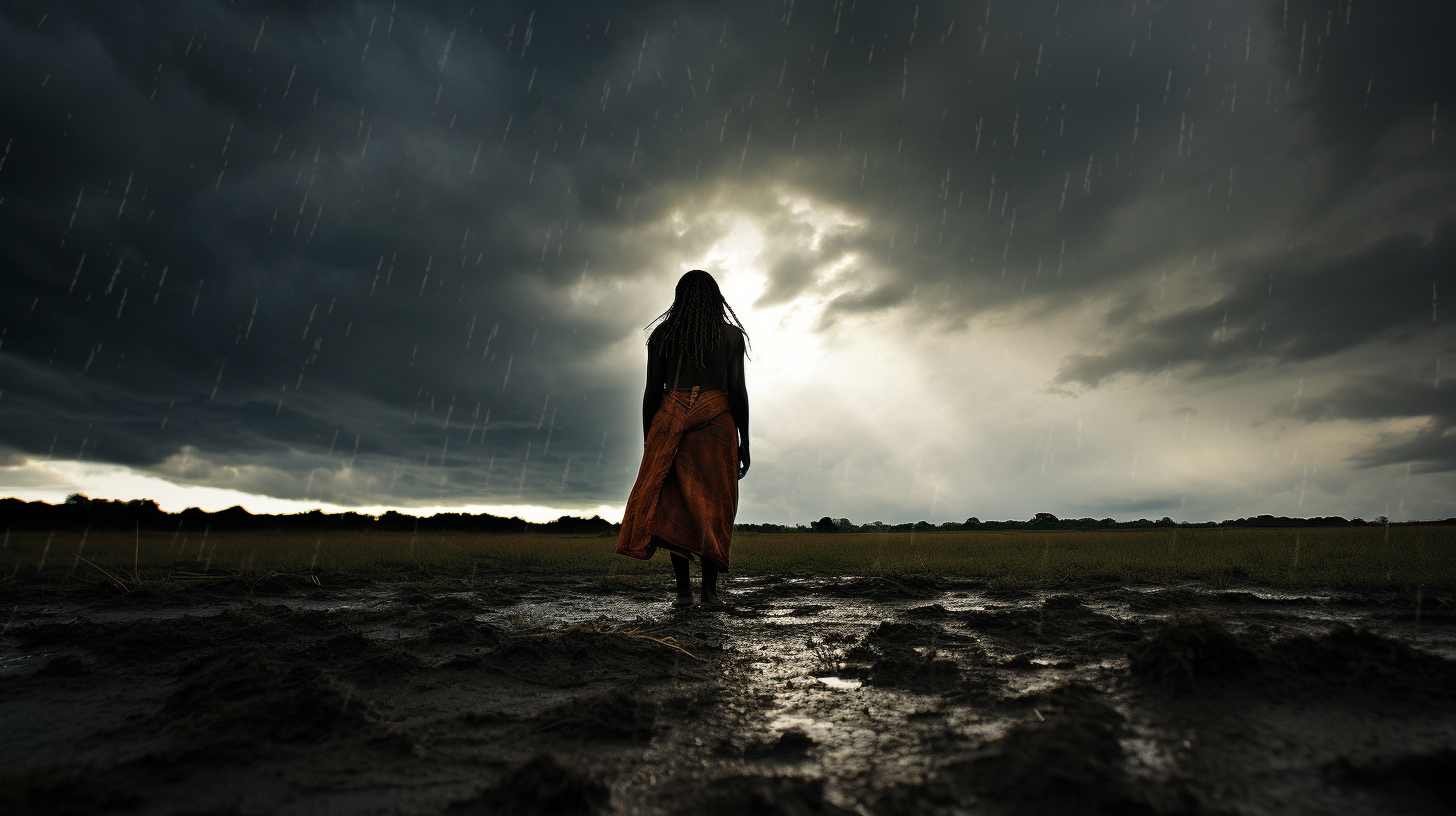In a world where parched earth crackles underfoot and the once lush landscapes are now mere memories, the irony of ancient rain ceremonies has never been more poignant. Hidden in the annals of history, our ancestors danced in vibrant regalia, a physical invocation for the heavens to weep in sympathy with our ever-thirsty mother earth. Today, in the glaring face of environmental calamity, such desperate prayers for precipitation seem as archaic as they are heart-wrenchingly futile.
Let us not forget, rain ceremonies were once widespread amidst diverse cultures, from the Native American tribes to the African savannahs, where each ritual step and chanted verse was a pact between humans and the elements. ‘To summon the rain was to assert control over the capricious whims of nature,’ a scholar of ancient rites once noted. Yet, paradoxically, as we advanced in technological prowess, we traded the simplicity of ritual for the complexity of industry, unwittingly chaining ourselves to a cycle of environmental degradation.
Consider the tale of the Zuni people, who enacted the intricate Shalako ceremony, an elegant spiritual pageant to honor the kachina spirits with the hopes of summoning life-giving rains. Fast forward to the twenty-first century, and we find that no amount of ritual could conjure a single drop from the barren skies. ‘The Zuni, like countless others, were architects of rain in their time,’ whispers an elder, standing on soil too desiccated to nurture even the hardiest desert bloom. The cruel jest of our times is that humanity has effectively eradicated the possibility of such natural bounty.
In our zeal for progress, we have scarred the skies with the carbon exhalations of our industries, turning what was once a blue canvas into a leaden vault, unyielding and silent. The clouds that hover, choked by the emissions, are a morbid audience to a spectacle they no longer perform in. As we reach towards the heavens with our skyscrapers and our satellites, we only succeed in pushing the prospect of rain further away from our grasp.
But let us make sport of irony, shall we? We find humor, dark though it may be, in our technologically advanced societies organizing artificial ‘rain dances’ in the form of cloud seeding initiatives. ‘Remarkable to think,’ a climate scientist muses, ‘that we now look upon machines to do what we once asked of the spirits.’ The collective yearning for rain in our ancestors’ heartbeats has been replaced by the detached whir of silver iodide cannons, firing particles into the sky in a desperate bid to scratch a single tear from the eyes of the cosmos.
It is a chase, one might say, that carries the weighty trappings of Greek tragedy – all the machinations and hubris of humankind embodied in our plight against drought. But where the ancient Greeks warned of the inescapable nets of fate, we find ourselves entangled by something far more insidious and, ironically, of our own creation – climate change.
Through the smoggy lens of environmental neglect, one might catch glimpses of those venerable rituals now clouded in the dust of disillusionment. There lie the drums that once summoned storms, silent amidst the cacophony of collapsing ecosystems. We, the cloud chasers of the modern era, are left to chase phantoms; to yearn for the ceremonies of old not for their mystical prowess, but for the simplicity and symbiosis with nature they represented.
Perhaps, in the recognition of the irony that a once abundant world is now a tableau of thirst, there lies a sliver of enlightenment — a call to reflect and, perhaps, rectify. But in the tradition of Green Dystopia, we present not hope, but rather a sobering mirror to gaze upon the consequences of our inaction. ‘For every ceremony unheld, there is a forest uncleansed by rain, a harvest unreaped – and a future ever more uncertain,’ concludes a poet of ecological doom.
In such reflections, we do not seek the resurgence of ancient ways; rather, we mourn their passing more deeply within the context of what we have lost – the ability to conjure hope in the rhythm of a rain dance.
